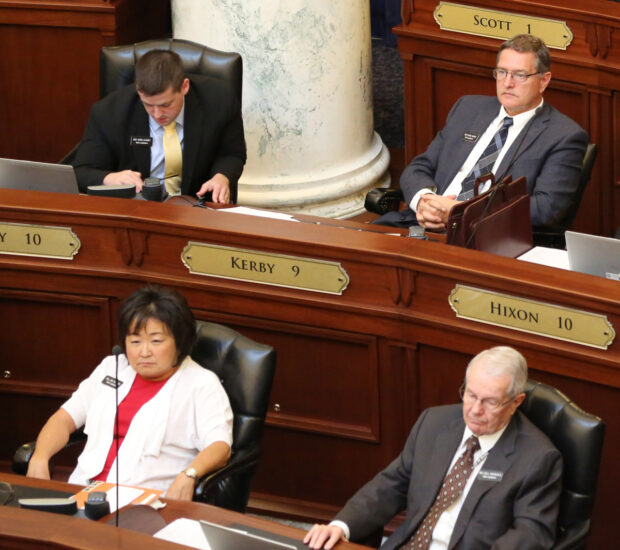Editor’s note: This is the latest installment of our ongoing series of articles examining the state’s effort to comply with the Every Student Succeeds Act. The series continues into August.
One of the last remaining debates over Idaho’s unfinished plan to comply with the federal Every Student Succeeds Act focuses on the state’s longterm education goals — and whether they are realistic.
Idaho faces a Sept. 18 deadline to submit its ESSA plan to the U.S. Department of Education, and must comply with the law beginning in the 2017-18 school year.

The ESSA plan is important because it represents Idaho’s application for $83 million in annual federal funding for education.
During ESSA meetings this summer, lawmakers and education leaders argued over Idaho’s proposed longterm goals for students with disabilities and English-language learners. Some say the goals were so unattainable educators may simply disregard them.
The most recent publicly available draft of the plan calls for a steep increase in test scores for students with disabilities. In 2016, 15 percent of students with disabilities scored “proficient” on reading and language arts tests. In 2022, the state wants that number to improve to 57.6 percent.
In that same draft, the state wants proficiency scores for all students to improve from 53 percent of students in 2016 to 70.8 percent in 2022.
For context, state assessment scores were virtually unchanged in the past year, even decreasing in certain grade levels.
Rep. Ryan Kerby, R-New Plymouth, a retired school superintendent, was among the most vocal critics of the goals.
“To me, we haven’t talked about the main issue here: How are we going to reach those goals?” Kerby asked June 26. “I haven’t heard any kind of plan on how to reach them.”
“A lot of that is probably impossible,” Kerby said the next day. “What we don’t want to do is put schools in a situation where they almost certainly know they aren’t going to make it and just dismiss the whole thing.”
Idaho Association of School Administrators executive director Rob Winslow also warned against unrealistic goals.
“If these kind of things are set too high, they are irrelevant to my members,” Winslow said. “We’ve done this before (in No Child Left Behind) and it didn’t really do anything.”
Kerby offered a counterproposal to increase proficiency rates by a smaller rate of 3 percentage points per year. But Karlynn Laraway, the State Department of Education’s director of assessment, said this week that Kerby’s proposal would not shrink achievement gaps among subgroups of students.
Laraway unveiled a third option Monday. She presented a goal of reducing the rate of non-proficient students by 33 percent over six years. The new plan scales back the goals for students with disabilities; in 2022, the state wants 43.2 percent of students with disabilities to score proficient.
Idaho’s proposed education goals, at a glance
ESSA plan, sixth draft (all tables reflect English language arts goals)
All students
2016: 53 percent.
2022: 70.8 percent.
Students with disabilities
2016: 15 percent.
2022: 57.6 percent.
Kerby counterproposal
All students
2016: 53 percent.
2022: 71 percent.
Students with disabilities
2016: 15 percent.
2022: 33 percent.
SDE’s latest counterproposal
All students
2016: 53 percent.
2022: 68.6 percent.
Students with disabilities
2016: 15 percent.
2022: 43.2 percent.
SDE officials must finalize Idaho’s education goals before completing the ESSA plan. The plan is scheduled to go before the State Board for a vote Aug. 9-10 and is due to the U.S. Department of Education Sept. 18.
SDE’s sixth draft of the ESSA plan is available online. The state is taking suggestions and feedback through July 31 on the SDE’s online public comment form.
Further ESSA reading:
June 15: Education groups feel disrespected over lack of ESSA participation
June 26: Education groups dissect federal ESSA plan
June 27: Lawmakers also say they were kept in the dark over ESSA plan
July 13: Small schools may be exempt from accountability under ESSA plan
July 17: Policymakers warming to ESSA plan as deadline approaches
